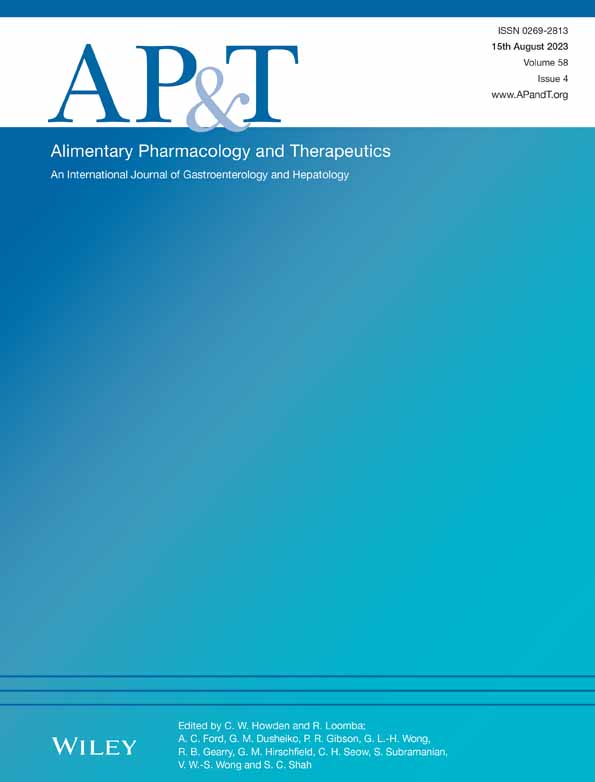Severe hepatitis B flares with hepatic decompensation after withdrawal of nucleos(t)ide analogues: A population-based cohort study
The Handling Editor for this article was Professor Geoffrey Dusheiko, and it was accepted for publication after full peer-review.
Summary
Background
Finite nucleos(t)ide analogue (NUC) therapy has been proposed as an alternative treatment strategy for chronic hepatitis B (CHB).
Aim
To quantify the incidence of severe hepatitis flares following NUC cessation in everyday clinical practice.
Methods
This population-based cohort study enrolled 10,192 patients (male 71.7%, median age 50.9 years, cirrhosis 10.7%) who had received first-line NUCs for at least 1 year before discontinuing treatment. The primary outcome was severe flare with hepatic decompensation. We used competing risk analyses to assess event incidences and associated risk factors.
Results
During a median follow-up of 2.2 years, 132 patients developed severe flares with hepatic decompensation, yielding a 4-year cumulative incidence of 1.8% (95% confidence interval [CI], 1.5%–2.2%). Significant risk factors were cirrhosis (adjusted sub-distributional hazard ratio [aSHR], 2.74; 95% CI, 1.82–4.12), manifestations of portal hypertension (aSHR, 2.46; 95% CI, 1.45–4.18), age (aSHR, 1.21 per 10 years; 95% CI, 1.03–1.42) and male sex (aSHR, 1.58; 95% CI, 1.04–2.38). In patients without cirrhosis or portal hypertension (n = 8863), the 4-year cumulative incidence of severe withdrawal flares stood at 1.3% (95% CI, 1.0%–1.7%). For those patients with available data confirming adherence to the standard stopping rules (n = 1274), the incidence was 1.1% (95% CI, 0.6%–2.0%).
Conclusions
Severe flares with hepatic decompensation were observed in 1%–2% of patients with CHB after stopping NUC therapy in daily practice. Risk factors included older age, cirrhosis, portal hypertension and male sex. Our findings argue against NUC cessation as part of routine clinical care.
CONFLICT OF INTEREST STATEMENT
Yao-Chun Hsu has received lecture fees from Abbvie, Bristol-Myers Squibb, Gilead Sciences and Novartis, served as an advisory committee member for Gilead Sciences, and received research grants from Gilead Sciences. Yi-Hsian Lin reported no conflicts of interest. Teng-Yu Lee has received grants from Merck Sharp & Dohme and Gilead Sciences and served as an advisory board member for Gilead and Bristol-Myers Squibb. Mindie H. Nguyen has received research support from Pfizer, Gilead Sciences, Enanta, Vir Biotech, Glycotests, B. K. Kee Foundation and the National Cancer Institute and has served as an advisory board member or consultant for Gilead, Intercept, Novartis, Eisai, Bayer, Exact Science, Laboratory of Advanced Medicine, Spring Bank and Janssen. Cheng-Hao Tseng has received lecture fees from Abbvie, Bristol-Myers Squibb, Gilead Sciences, Bayer and Roche. Hsiu J. Ho reported no conflicts of interest. Feng-Yu Kao reported no conflicts of interest. Jaw-Town Lin reported no conflicts of interest. Chen-Yi Wu reported no conflicts of interest. Chun-Ying Wu reported no conflicts of interest.




